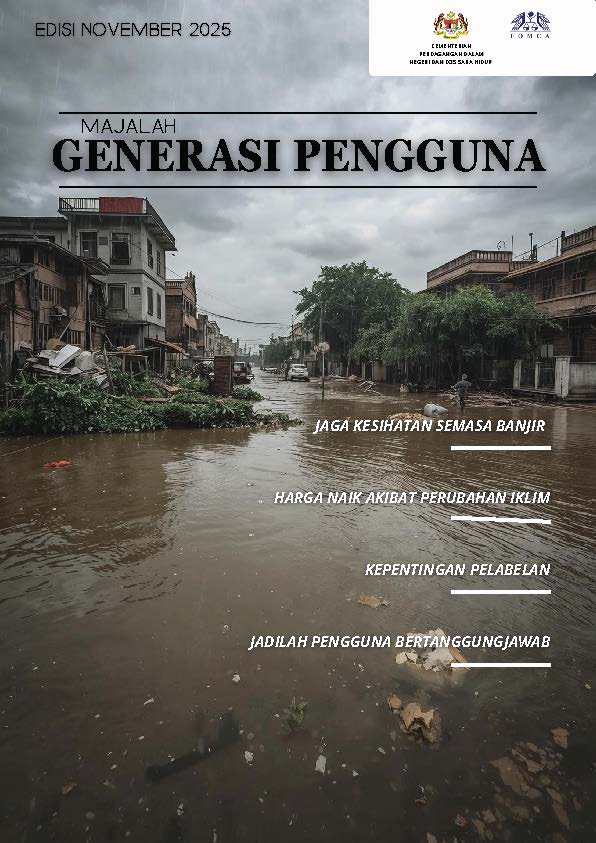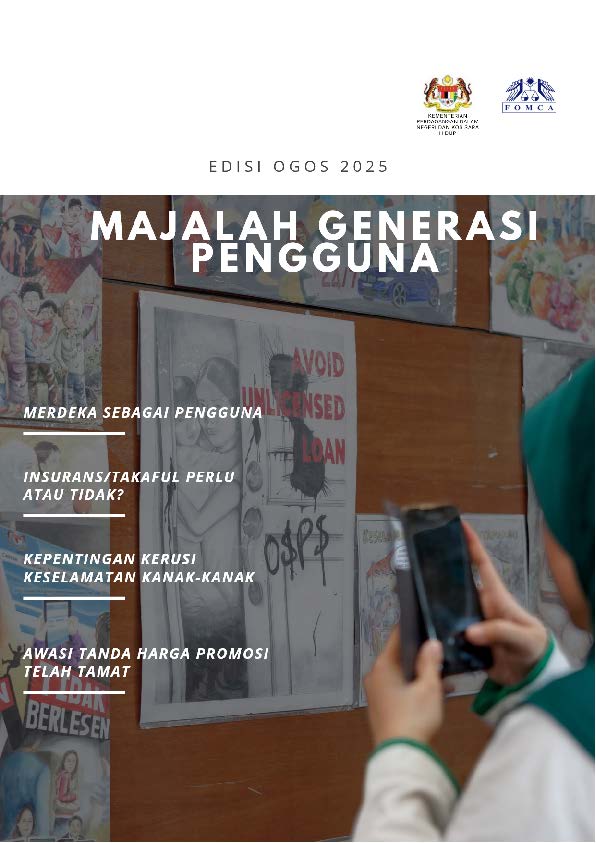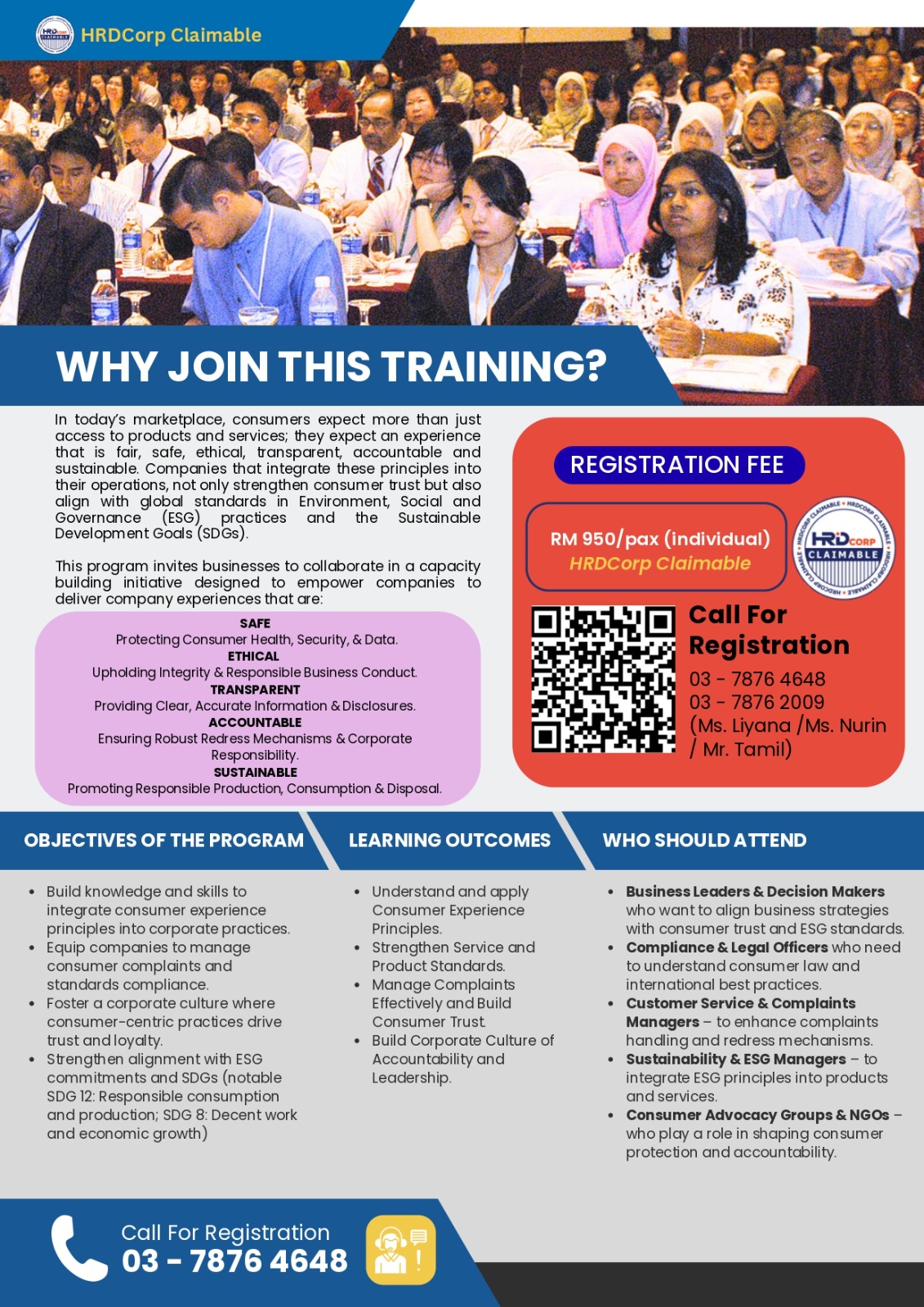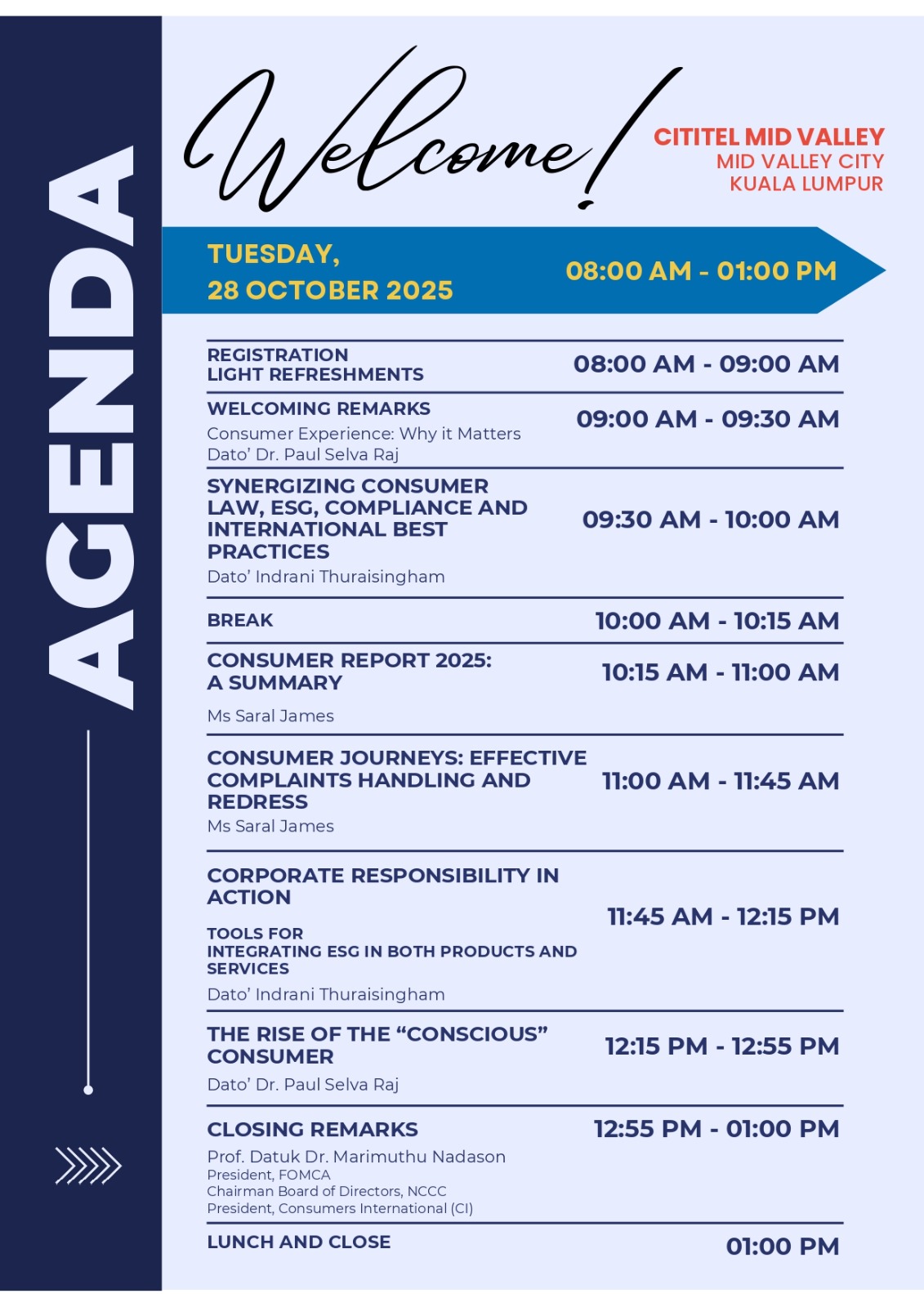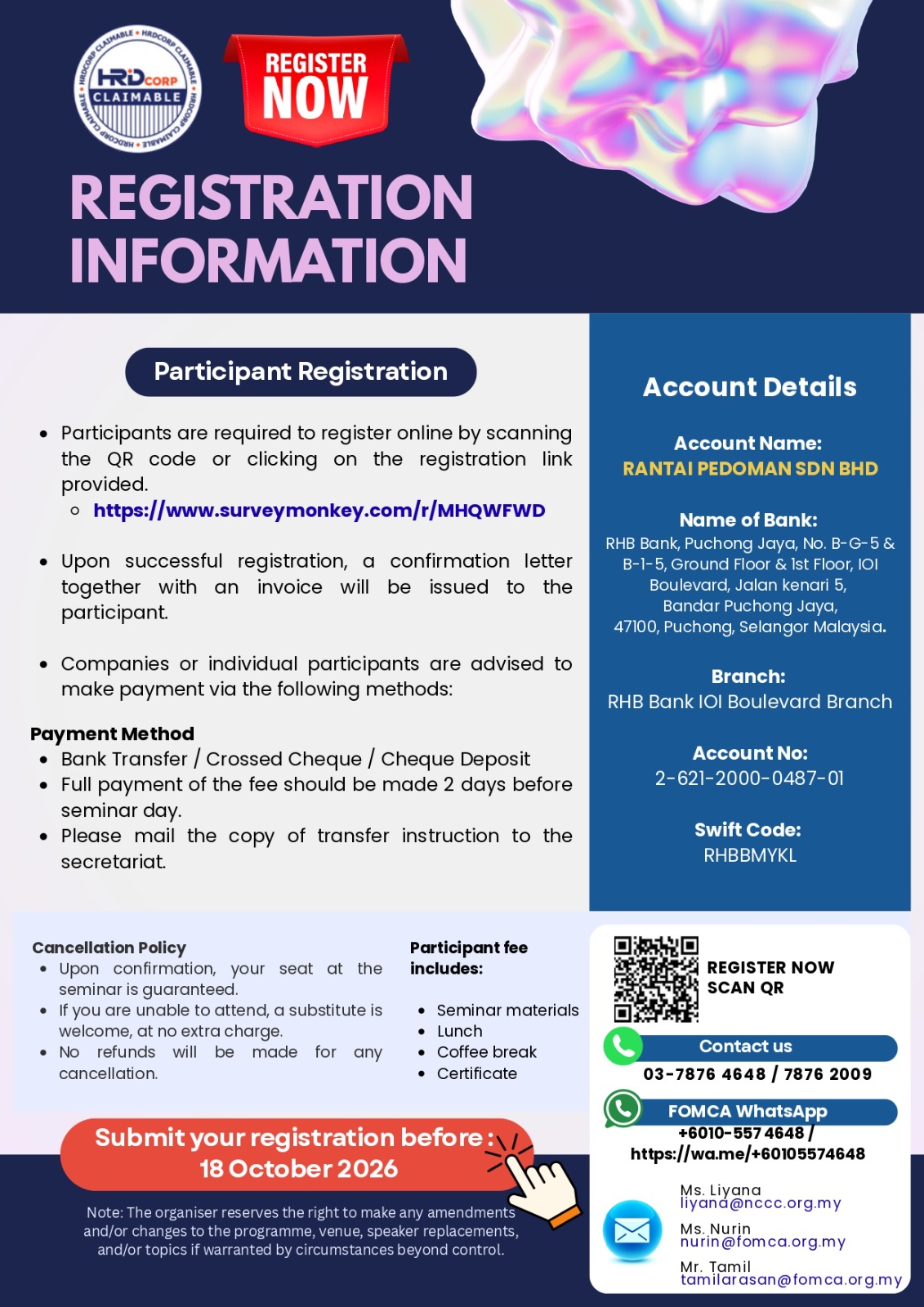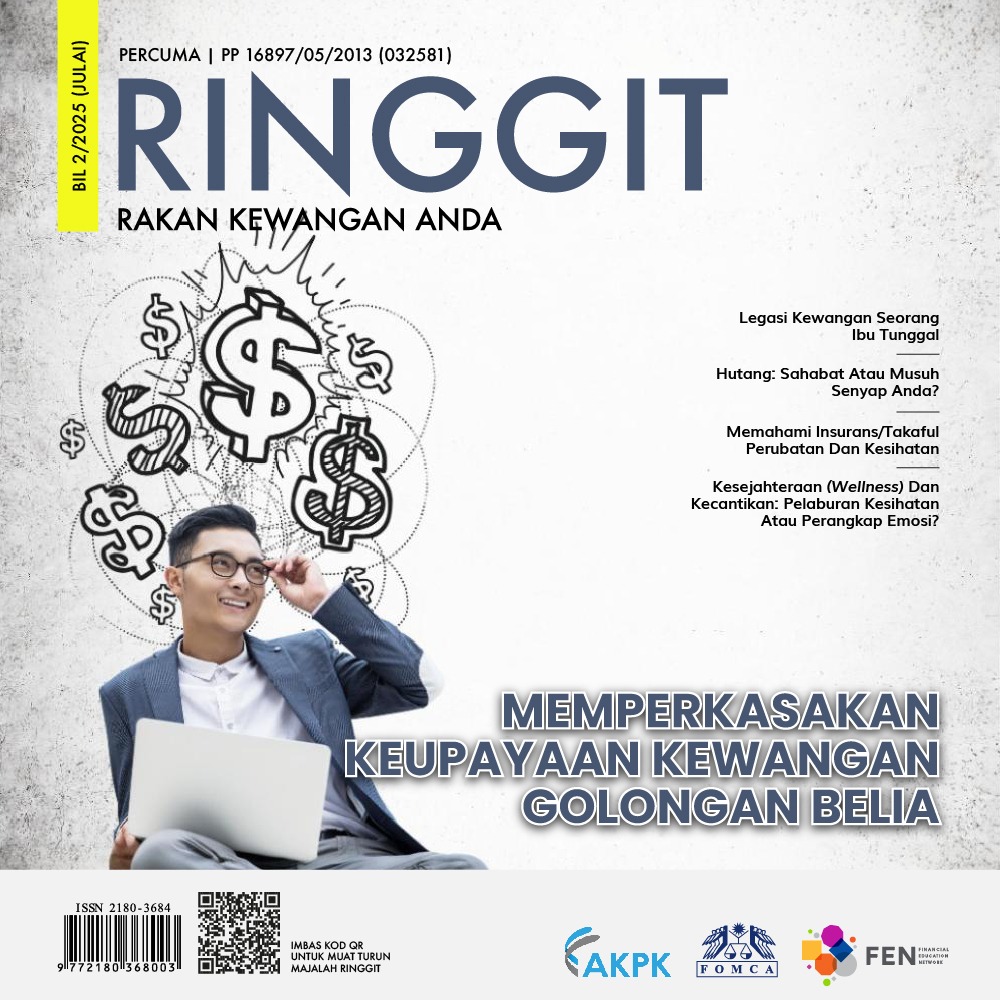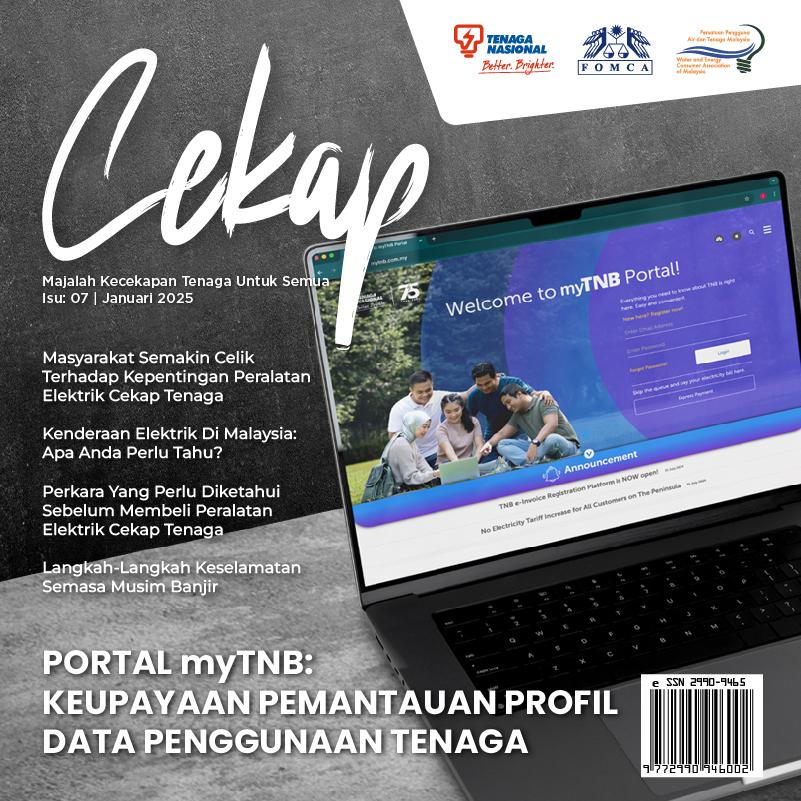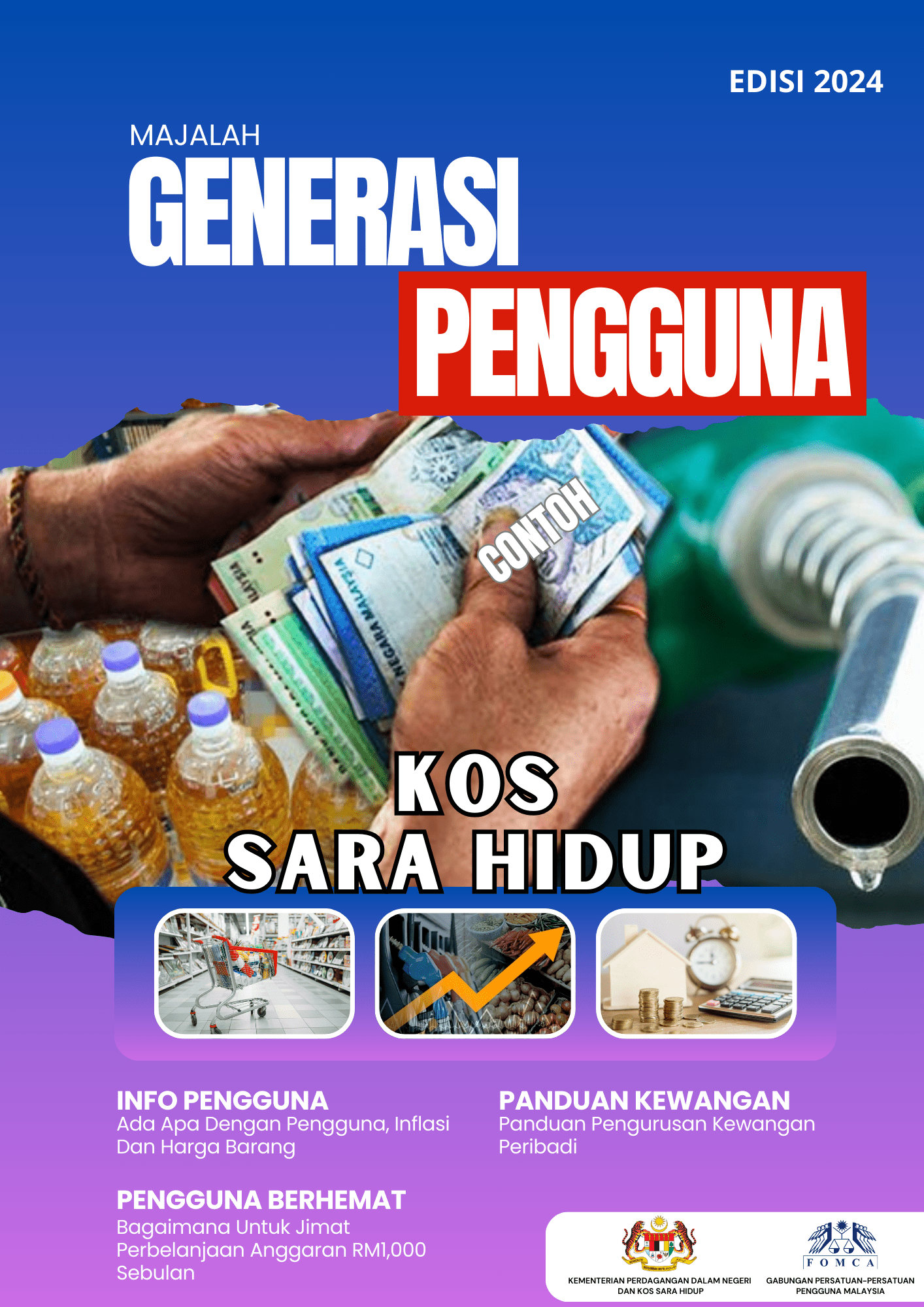- Details
- Category: PROFIL FOMCA
𝐃𝐀𝐏𝐀𝐓𝐊𝐀𝐍 𝐈𝐍𝐅𝐎 & 𝐓𝐈𝐏 𝐊𝐄𝐖𝐀𝐍𝐆𝐀𝐍 𝐓𝐄𝐑𝐊𝐈𝐍𝐈 𝐒𝐄𝐂𝐀𝐑𝐀 𝐃𝐈𝐆𝐈𝐓𝐀𝐋
𝐌𝐀𝐉𝐀𝐋𝐀𝐇 𝐑𝐈𝐍𝐆𝐆𝐈𝐓 𝐄𝐃𝐈𝐒𝐈 𝐃𝐈𝐆𝐈𝐓𝐀𝐋 📲
𝐁𝐢𝐥 5 - Disember 𝟐𝟎𝟐𝟓
👉 https://tinyurl.com/RINGGIT0017
𝐌𝐀𝐉𝐀𝐋𝐀𝐇 𝐃𝐈𝐆𝐈𝐓𝐀𝐋 𝐑𝐈𝐍𝐆𝐆𝐈𝐓 adalah usahasama Gabungan Persatuan-Persatuan Pengguna Malaysia (FOMCA) dan Agensi Kaunseling dan Pengurusan Kredit (AKPK) untuk menyampaikan pendidikan kewangan kepada anda.
📚 Baca & Muat Turun kesemua edisi RINGGIT melalui pautan:
https://tinyurl.com/Ringgit001-pusatsumber
Powered by: Wordlabs’ Virtual PaperPro
- Details
- Category: PROFIL FOMCA
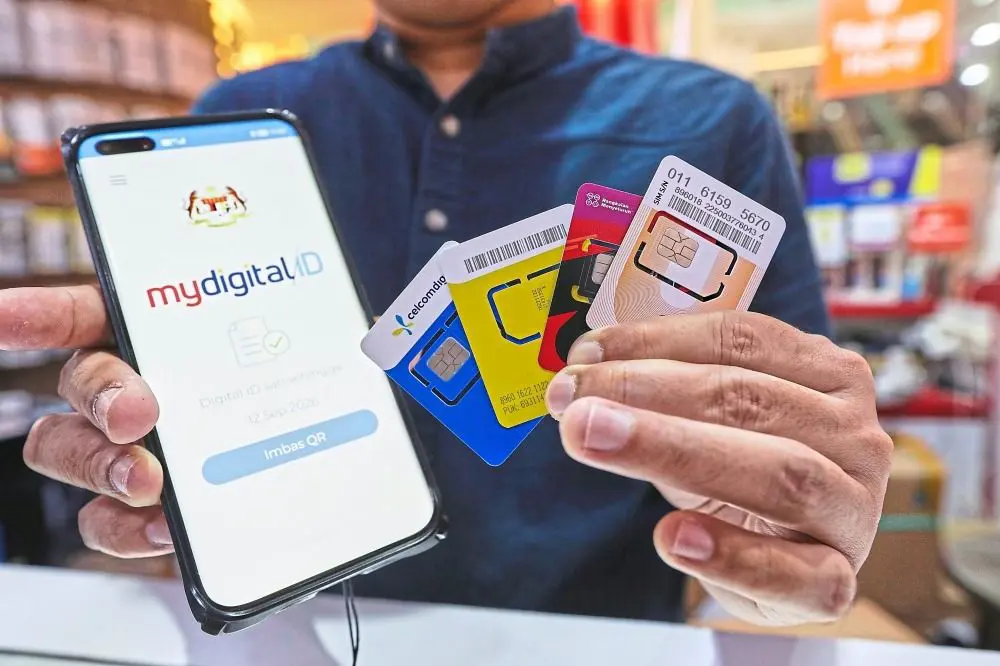 PETALING JAYA: Malaysia’s push to link prepaid SIM registration with MyDigital ID is viewed as a crucial step to combat rampant scams; however, some experts express concerns it could undermine consumer privacy.Malaysian Cyber Consumer Association (MCCA) president Siraj Jalil said they have been advocating for this initiative since January.
PETALING JAYA: Malaysia’s push to link prepaid SIM registration with MyDigital ID is viewed as a crucial step to combat rampant scams; however, some experts express concerns it could undermine consumer privacy.Malaysian Cyber Consumer Association (MCCA) president Siraj Jalil said they have been advocating for this initiative since January.
“We urged the government not only to reform prepaid SIM registration with MyDigital ID but also to track down the supply chain where registered SIM cards are sold illegally.
“This initiative by the government is crucial, as scammers widely use registered SIM cards to conduct their illegal operations,” said Siraj.
On Wednesday, Communications Minister Datuk Fahmi Fadzil announced that all telecommunications companies in the country would be instructed to implement MyDigital ID in the prepaid SIM registration process.
Fahmi said the policy would be enforced by the end of the year.
The measure, he added, would close loopholes in the existing system and prevent any potential misuse.
Read more: MyDigital ID plan for prepaid cards sparks privacy debate
- Details
- Category: PROFIL FOMCA
 Jan 18, 2025 12:00 PM
Jan 18, 2025 12:00 PM
SOTHI RACHAGAN is an emeritus professor who is a formerdean of the faculty of law of Universiti Malaya; vice-chancellor of Perdana University and Nilai University, and president of theInternational Association of Consumer Law. He serves onnumerous international consumer protection bodies.
COMMENT | Healthcare and insurance are essential services and should not be treated as ordinary businesses. This is particularly true for healthcare insurance. The announcement of healthcare insurance premiums increasing by 40-70 percent has understandably alarmed consumers.
In response, Bank Negara Malaysia (BNM) introduced a series of immediate measures to ensure continued access to healthcare insurance and address rising medical costs (Interim Measures to Assist Policyholders and Promote Continued Access to Suitable Medical and Health Insurance/Takaful Products, Dec 20, 2024).
These interim measures are a positive step forward. However, they lack provisions for transparency and accountability from insurers and the regulator, BNM. Transparency and accountability are critical to fostering consumer trust.
Key metrics for insurer performance
Several key metrics can help consumers evaluate insurerperformance and enable regulators to monitor the industry’s health.
> Claims ratio: The ratio of claims paid out to premiumsreceived.
> Loss ratio: The ratio of claims and adjustment expenses(including claim investigation and verification costs) topremiums received.
> Claims settlement ratio: The proportion of claims settledagainst total claims filed (both in number and value). Thisratio allows buyers to compare insurers and choose themost reliable provider.
> Expense ratio: The proportion of expenses incurred inacquiring, underwriting, and servicing premiums relativeto premiums earned, reflecting an insurer’s operationalefficiency before factoring in policy claims and investmentgains or losses.


